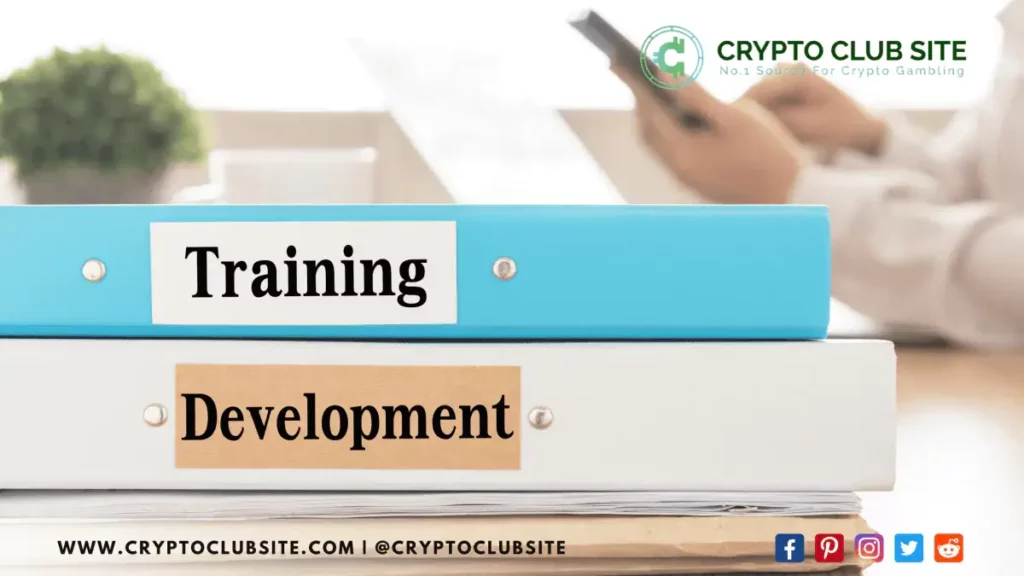INTRODUCTION
A company that organizes and aids professional gamers is known as a gaming organization. To assist athletes compete at the top level, they offer players coaching, training, and other tools. In addition, esports teams that participate in competitions and leagues are frequently owned and run by gaming companies.
The esports market is expanding quickly. The value of the worldwide esports industry was $1.1 billion in 2022, and by 2024, it is anticipated to reach $1.7 billion. The popularity of video games, the increase in live broadcasting, and the accessibility of prize money are the main drivers of this expansion. League of Legends, Dota 2, Counter-Strike: Global Offensive, and Fortnite are the most played esports games.
Millions of individuals worldwide participate in these games, which also produce millions of dollars in prize money. Esports competitions are also rising in popularity. Over 100 million people watched the League of Legends World Championship in 2022. As a result, it is among the most viewed athletic events worldwide.
There are a few steps you must do if you want to launch a gaming company. You must first comprehend the esports industry’s potential for development. The next step is to create a business plan that details your objectives and your strategies for achieving them. Finding good athletes and coaches is the third step. Finally, you must promote your cause and get sponsors. Read on to learn more.

LEGAL AND FINANCIAL CONSIDERATIONS
In the second part of our guide on how to start a gaming organization, we will delve into the important legal and financial considerations you need to address. Building a solid foundation in these areas will help ensure the smooth operation of your gaming organization. Let’s explore each aspect in detail:
Choosing a Legal Entity for Your Gaming Organization:
It’s crucial to pick a legal structure that meets your objectives and offers the required legal protection when beginning a gaming business.
- Sole Proprietorship: The simplest and most easy choice is a sole proprietorship. You are running the business as an individual and are in complete control of the decision-making process. However, since there is no legal separation between you and the business, you are personally liable for any debts and legal issues.
- Partnership: If you plan to start a gaming organization with one or more individuals, a partnership might be suitable. Partnerships can be either limited partnerships, where certain participants have limited liability, or general partnerships, where all partners have equal duty and liability.
- Limited Liability Company (LLC): An LLC is a popular choice for gaming organizations. It offers limited liability protection for its members, meaning their personal assets are generally safeguarded from business debts or liabilities. LLCs also provide flexibility in management and taxation.
- Corporation: A corporation is a separate legal entity from its owners. It offers the strongest liability protection, as the corporation itself is responsible for its debts and legal obligations. Corporations have a more complex structure and require adherence to corporate formalities, such as holding regular meetings and keeping detailed records.
Obtaining Necessary Licenses and Permits:
You might need to secure certain licenses and permissions depending on the nature of your gaming business and its operations. It is essential to learn about and abide by the rules in your region because these criteria differ depending on the jurisdiction.
Some common licenses and permits for gaming organizations include:
- Business License: Obtain a general business license from your local government or municipality. This license grants you the legal right to operate your organization within a specific area.
- Gaming Licenses: If your organization involves hosting gaming events, tournaments, or competitions, you may need specific gaming licenses. These licenses ensure compliance with gaming regulations and may include background checks, age restrictions, and financial requirements.
- Copyrights and Trademarks: If you plan to develop your own gaming content, it’s essential to protect your intellectual property. Consider registering copyrights for original works and trademarks for unique logos, names, or slogans associated with your organization.
Creating a Budget and Securing Funding:
Your gaming business’s financial security depends on you creating a thorough budget. Think about the following actions:
- Identify Expenses: Create a list of all the costs associated with running your company. This might involve paying for utilities, renting a space, and purchasing hardware and software licensing. Make careful to take into consideration both initial setup expenditures and continuing operating costs.
- Revenue Sources: Determine how your organization will generate revenue. This may include sponsorships, ticket sales, merchandise sales, advertising, partnerships, and participation fees. Research potential revenue streams and estimate their potential income.
- Financial Forecast: Based on your expenses and revenue projections, create a financial forecast. This will help you understand your organization’s financial viability and plan for the future. Consider various scenarios and contingencies.
- Funding Options: Once you have a clear understanding of your financial needs, explore funding other funding options available.

BRANDING AND MARKETING
The third section of our guide on how to launch a gaming organization will be dedicated to branding and marketing tactics. To draw participants, sponsors, and a devoted community, your organization must develop a strong brand identity and execute an efficient marketing strategy. Let’s examine each point in further detail:
Developing a Brand Identity for Your Gaming Organization:
A compelling brand identity helps differentiate your gaming organization from others and creates a memorable and consistent image. Consider the following steps:
- Define Your Mission and Values: Clearly articulate the purpose of your gaming organization and the values it stands for. This will guide your brand identity and resonate with your target audience.
- Create a Unique Name and Logo: Choose a name that reflects your organization’s identity and is easy to remember. Design a logo that visually represents your brand and appeals to your target demographic. Consider hiring a professional graphic designer for high-quality branding assets.
- Visual and Verbal Identity: Develop a consistent visual identity by choosing a color palette, typography, and visual elements that align with your brand’s personality. Also, define your brand’s voice and tone for written content, ensuring consistency across all communications.
- Brand Messaging: Craft compelling and consistent messaging that conveys your organization’s unique selling points, values, and benefits to potential players, sponsors, and partners. This messaging should be incorporated into your website, social media, and other marketing materials.
Creating a Website and Social Media Presence:
Reaching and interacting with your target audience requires a credible website and a robust social media presence. To build your online presence, take the following actions:
- Website Development: Build a user-friendly website that conveys your company’s brand identity and offers crucial details about it. Sections like “About Us,” “Events,” “Teams,” “News,” and “Contact” should be included. For simple updates and maintenance, think about incorporating a content management system (CMS).
- Engaging Content: Regularly update your website with engaging content such as news, event announcements, player profiles, and articles related to gaming. Incorporate high-quality images, videos, and interactive elements to enhance user experience.
- Social Media Channels: Choose the social media sites that are most widely used by your target market and register on them. Create a content plan that supports your brand and interacts with your audience. Post updates, behind-the-scenes footage, and highlights from events frequently, and engage your audience by responding to comments and messages.
- Influencer and Community Outreach: Collaborate with gaming influencers, streamers, and content creators who align with your brand. Offer them opportunities to engage with your organization, participate in events, or become brand ambassadors. Engage with your community by hosting live streams, Q&A sessions, and contests.
Building a Community Around Your Brand:
A thriving community is vital for the success of your gaming organization. Nurture and engage your community through the following strategies:
- Community Platforms: Create dedicated community spaces such as forums, Discord servers, or subreddit threads. Encourage discussions, provide support, and organize community-driven events.
- Engage and Interact: Actively participate in your community by responding to comments, messages, and inquiries promptly. Show appreciation for community contributions and encourage members to share their experiences and ideas.
- Organize Events and Tournaments: Host gaming events, tournaments, and competitions that allow community members to showcase their skills and interact with each other. Offer attractive prizes and incentives to encourage participation.
- Sponsorship and Partnership Opportunities: Seek opportunities to collaborate with sponsors, other gaming organizations, or industry stakeholders. Leverage these partnerships to provide additional value to your community and expand your reach.

TEAM BUILDING
Team building will be the subject of the fourth section of our guide on how to launch a gaming organization. The success of your gaming company depends on building a strong and cohesive team. Let’s look at the main components of team building:
Recruiting Players and Coaches:
- Define Your Team Requirements: Determine the specific roles and positions you need to fill in your gaming organization. Consider the game(s) you’ll be competing in and the desired skill sets, experience, and compatibility with your team’s strategy.
- Scouting and Recruitment: Look for potential players and coaches through various channels, such as online gaming communities, forums, social media, and local gaming events. Attend tournaments and observe players’ performance to identify talent. Reach out to individuals who demonstrate the skills and qualities you’re seeking.
- Tryouts and Evaluations: Conduct tryouts to assess the abilities of potential players. Design challenges or matches that test their skills, teamwork, communication, and decision-making. Consider involving current team members and coaches in the evaluation process.
- Interviewing and Selection: Once you’ve identified promising candidates, conduct interviews to get to know them better. Ask questions about their gaming experience, commitment level, communication style, and ability to adapt to team dynamics. Consider conducting background checks and verifying their gaming history if necessary.
Developing a Team Culture and Values:
- Establish Clear Expectations: Define your team’s expectations regarding commitment, practice schedules, behavior, and professionalism. Clearly communicate these expectations to all team members and ensure they understand the consequences of not meeting them.
- Foster Communication and Collaboration: Encourage open and constructive communication among team members. Create channels or platforms for effective communication, such as team chat groups or voice channels. Foster an environment where feedback is encouraged and conflicts are resolved promptly and respectfully.
- Set Team Values and Identity: Identify core values that align with your organization’s mission and culture. These values could include teamwork, dedication, sportsmanship, and continuous improvement. Encourage team members to embrace and uphold these values in their interactions and conduct.
- Team-Building Activities: Organize team-building activities outside of gaming to strengthen relationships, trust, and camaraderie among team members. This could include team outings, retreats, or casual gatherings where members can bond and get to know each other on a personal level.
Providing Resources and Support for Your Team:
Training and Coaching: Provide regular training sessions and coaching to help your team improve their skills, strategies, and teamwork. Consider hiring experienced coaches who can guide and mentor your players. Invest in resources such as gaming equipment, software, and access to practice facilities.
Sponsorship and Financial Support: Seek sponsorships or funding opportunities to provide financial support for your team. This could cover expenses such as travel, tournament entry fees, equipment upgrades, and team jerseys. Develop sponsorship proposals highlighting the benefits for potential sponsors.
Mental and Physical Well-being: Prioritize the well-being of your team members. Encourage healthy gaming habits, regular breaks, and physical exercise. Educate them about ergonomics and proper posture to avoid gaming-related injuries. Offer resources and support for managing stress and maintaining a healthy work-life balance.
Recognition and Rewards: Acknowledge and celebrate your team’s achievements. Recognize outstanding performances, milestones, and improvements. Consider providing rewards or incentives to motivate and encourage your team members.

TRAINING AND DEVELOPMENT
To assist your team enhance their abilities and promote a culture of continuous learning, we will concentrate on training and development initiatives in the fifth section of our guide on how to launch a gaming organization. These are the main factors to think about:
Developing a Training Program for Your Team:
- Assess Individual Skills: Evaluate the strengths and weaknesses of each team member. Identify areas where they can improve and set specific goals for their development.
- Establish a Training Schedule: Create a structured training schedule that includes regular practice sessions. Set aside dedicated time for team practice, individual skill-building, and strategy development.
- Team Practice Sessions: Conduct team practice sessions where players can collaborate, refine their teamwork, and work on game-specific strategies. Focus on communication, coordination, and understanding each player’s role within the team.
- Individual Skill-Building: Encourage players to work on their individual skills through practice and self-improvement. Provide resources, such as tutorials, guides, and training materials, to help them develop specific techniques and game knowledge.
Providing Players with Resources to Develop Their Skills:
- Gaming Equipment: Make sure your gamers have access to top-notch gaming hardware, such as gaming PCs, consoles, peripherals, and steady internet connections. They are able to compete and train without any technological restrictions thanks to this.
- Software and Tools: Give your players access to the programs and equipment they need to improve their practice and performance. Software for voice communication, game analysis tools, and performance monitoring are some examples of this.
- Coaching and Mentorship: Consider hiring experienced coaches or mentors who can provide guidance and individualized training for your players. Coaches can analyze gameplay, identify areas for improvement, and provide valuable feedback and strategies.
Creating a Culture of Continuous Learning and Improvement:
- Encourage Self-Learning: Foster a culture where players actively seek opportunities for self-improvement. Encourage them to explore new strategies, watch professional gameplay, and participate in online communities and forums to learn from other players.
- Regular Team Discussions: Organize regular team discussions to review gameplay, strategies, and individual performance. Encourage players to provide constructive feedback to one another and engage in collaborative problem-solving.
- Attend Tournaments and Events: Encourage your team to take part in tournaments and events to get knowledge, exposure, and chances to face off against accomplished rivals. This helps them develop as gamers by exposing them to various playstyles and difficulties.
- Celebrate Achievements and Milestones: Recognize and celebrate individual and team achievements to motivate and encourage your players. This reinforces a sense of accomplishment and inspires them to continue striving for improvement.
COMPETITION AND EVENT PLANNING
We will concentrate on competition and event planning in the sixth part of our guide on how to launch a gaming organization. Establishing your presence in the gaming community requires both participating in esports contests and planning your own events. Let’s examine the main points:
Registering for Esports Competitions and Tournaments:
- Research Competitions: Identify reputable esports competitions and tournaments that align with your team’s skill level, game of choice, and goals. Research their registration requirements, entry fees, prize pools, and competition formats.
- Create a Competition Calendar: Develop a calendar to track upcoming competitions and their registration deadlines. This will help you plan and prioritize your participation.
- Register Early: Many competitions have limited slots or early bird discounts, so it’s important to register as early as possible to secure your spot and potentially save on registration fees.
- Comply with Rules and Regulations: Familiarize yourself with the rules and regulations of each competition. Ensure that your team meets the eligibility criteria, such as age restrictions and regional limitations.
Developing a Strategy for Event Planning and Logistics:
- Determine Event Type: Decide whether you want to organize online or offline events. Online events are more accessible and cost-effective, while offline events offer a unique and immersive experience.
- Set Goals and Objectives: Define the purpose of your event, whether it’s showcasing your team’s skills, promoting your organization, or fostering community engagement. Establish clear objectives to guide your event planning.
- Plan Event Schedule: Develop a detailed schedule that includes event dates, start and end times, tournament format, and breaks. Allow sufficient time for registration, warm-up, matches, and prize ceremonies.
- Venue Selection: If organizing an offline event, choose a suitable venue that can accommodate the number of participants, spectators, and necessary equipment. Consider factors such as location, accessibility, facilities, and budget.
- Logistics and Equipment: Arrange for necessary equipment, such as gaming PCs, consoles, monitors, internet connections, and peripherals. Ensure that the equipment is tested and functioning properly before the event.
Building Partnerships with Event Organizers and Sponsors:
- Collaborate with Event Organizers: Forge partnerships with established event organizers to participate in their competitions or co-host events. This allows you to leverage their expertise, resources, and audience reach.
- Seek Sponsorships: Approach potential sponsors who have an interest in gaming and esports. Develop sponsorship proposals that outline the benefits for sponsors, such as brand exposure, audience engagement, and access to the gaming community.
- Offer Sponsorship Packages: Create different sponsorship packages to cater to varying budget levels. Include benefits such as logo placement, naming rights, on-site promotions, social media mentions, and inclusion in event marketing materials.
- Provide Value to Sponsors: Deliver on your promises to sponsors and ensure that they receive the agreed-upon benefits. Acknowledge and thank sponsors publicly, both during the event and through post-event acknowledgements.
MONETIZATION STRATEGIES
In the seventh section of our guide on how to start a gaming organization, we will explore monetization strategies for your gaming organization. While passion for gaming is essential, establishing revenue streams is crucial for long-term sustainability and growth. Here are some key considerations:
Developing Revenue Streams for Your Gaming Organization:
- Sponsorships and Brand Partnerships: Seek partnerships with brands and sponsors that align with the gaming industry. This can involve brand endorsements, product placements, sponsored events, or collaborations. Provide value to sponsors by offering exposure to your community and leveraging your reach.
- Merchandise Sales: Create and sell branded merchandise such as apparel, accessories, collectibles, and gaming peripherals. Set up an online store or collaborate with third-party platforms to streamline the sales process. Quality designs and unique offerings can attract fans and generate revenue.
- Content Creation and Streaming: Leverage platforms like Twitch, YouTube, and other streaming services to create content and engage with your audience. Monetize your content through ad revenue, donations, subscriptions, sponsorships, and partnerships with streaming platforms.
- Tournament and Event Revenue: Organize your own tournaments, events, or LAN parties, and generate revenue through registration fees, ticket sales, and partnerships with sponsors. Provide a memorable experience, attractive prize pools, and opportunities for community engagement.
Examples of Successful Monetization Strategies in the Esports Industry:
- Team Sponsorships: Popular esports organizations often secure sponsorships from major brands in the gaming, technology, and lifestyle sectors. These sponsorships can include brand partnerships, jersey sponsorships, and event collaborations.
- Content Creation and Streaming: Esports personalities and content creators monetize their platforms through ad revenue, subscriptions, donations, and sponsorships. They engage their audience through entertaining gameplay, educational content, and interactive streams.
- In-Game Items and Microtransactions: Many esports titles offer in-game purchases, such as cosmetic items, skins, or virtual currency. This revenue stream can provide ongoing income, especially in free-to-play games with a large player base.
- Media Rights and Broadcasting: Esports organizations can secure media rights deals and broadcasting partnerships, allowing their events to be televised or streamed on platforms that reach a broader audience. This can generate revenue through licensing fees and ad placements.
Importance of Diversifying Revenue Streams:
You must diversify your sources of income if you want financial security and reduce your dependency on one particular source. It might be risky to depend solely on a single cash source or a sponsorship because market conditions and sponsorships may change over time.
However, it’s crucial to concentrate on monetization tactics that complement the image and tenets of your company. Select income sources that appeal to your target market and offer value without jeopardizing the integrity of your company.
Keep in mind that developing a stable business stream requires time and work. Based on market trends, community input, and the changing needs of your business, continuously assess and improve your plans.
CHALLENGES AND SOLUTIONS
In the final section of our guide on how to start a gaming organization, we’ll talk about the typical problems that gaming businesses run into and provide fixes. We’ll also go through the particular difficulties facing the esports sector and provide advice on formulating a strategy for sustainability and expansion.
Common Challenges Faced by Gaming Organizations and Their Solutions:
- Financial Constraints: Limited funding and financial resources can hinder the growth of a gaming organization. Seek sponsorships, grants, and partnerships to secure financial support. Develop a detailed budget, prioritize expenses, and explore cost-saving measures without compromising quality.
- Talent Acquisition and Retention: Finding skilled and dedicated players, coaches, and staff can be challenging. Create a strong brand identity and offer incentives such as competitive salaries, performance bonuses, and opportunities for growth and advancement. Cultivate a positive team culture and provide a supportive environment that encourages long-term commitment.
- Competition and Skill Development: The gaming industry is highly competitive, and staying ahead requires continuous skill development. Implement a structured training program, provide access to resources and coaching, and encourage players to participate in tournaments and gain exposure to top-level competition.
- Community Building and Engagement: Building a strong and engaged community is crucial for sustainability. Utilize social media, streaming platforms, and online forums to interact with your audience. Organize community events, offer exclusive content, and actively listen to feedback to foster a sense of belonging and loyalty.
Addressing the Unique Challenges of the Esports Industry:
- Rapidly Evolving Landscape: The esports industry evolves at a rapid pace, with new games, trends, and technologies emerging regularly. Stay informed and adapt to these changes by conducting market research, attending industry events, and networking with professionals in the field.
- Player Burnout and Well-being: Esports can be physically and mentally demanding, leading to gaming burnout and health issues. Put the health of your team members first by establishing set practice schedules, supporting work-life balance, encouraging healthy lifestyles, and making support resources available.
- Sponsorship and Revenue Generation: Securing sponsorships and developing sustainable revenue streams can be challenging in the esports industry. Focus on building meaningful relationships with sponsors and partners, and explore creative monetization strategies like content creation, merchandise sales, and event organization.
Developing a Plan for Sustainability and Growth:
- Define Your Vision and Goals: Establish a clear vision for your gaming organization and set achievable short-term and long-term goals. This provides direction and serves as a roadmap for sustainable growth.
- Continual Evaluation and Adaptation: Regularly assess your organization’s performance, strategies, and processes. Monitor market trends, listen to feedback from your community, and be willing to adapt and evolve as needed.
- Expand Your Network and Partnerships: Forge connections within the gaming industry, including other gaming organizations, event organizers, sponsors, and influencers. Collaborate on joint ventures, share resources, and leverage each other’s expertise for mutual growth.
- Foster a Strong Organizational Culture: Cultivate a positive and inclusive organizational culture that attracts talent and retains team members. Encourage open communication, celebrate achievements, and provide opportunities for personal and professional development.
- Long-Term Sustainability: Develop a sustainable business model by diversifying revenue streams, managing expenses efficiently, and investing in long-term growth strategies. Establish a financial plan that accounts for potential fluctuations in sponsorship, prize money, and industry trends.
CONCLUSION
Let’s summarize the procedures for establishing a gaming company in order to emphasize the potential for success in the esports sector as well as the value of motivation, tenacity, and enthusiasm.
Starting a gaming organization involves several key steps:
- Identifying Your Vision: Define your goals, values, and the type of gaming organization you want to build.
- Legal and Financial Considerations: Choose a legal entity, obtain necessary licenses and permits, create a budget, and secure funding.
- Branding and Marketing: Develop a brand identity, create a website and social media presence, and build a community around your brand.
- Team Building: Recruit players and coaches, develop a team culture and values, and provide resources and support for your team.
- Training and Development: Develop a training program, provide resources for skill improvement, and foster a culture of continuous learning and improvement.
- Competition and Event Planning: Register for esports competitions, develop event planning strategies, and build partnerships with event organizers and sponsors.
- Monetization Strategies: Develop revenue streams through sponsorships, merchandise sales, content creation, and event organization.
- Challenges and Solutions: Address common challenges like financial constraints, talent acquisition, competition, and community building. Adapt to the rapidly evolving esports industry and develop a plan for sustainability and growth.
Ultimately, the potential for success in the esports sector is enormous. It is a quickly expanding, fiercely competitive industry that draws a passionate, committed community of players and aficionados. Your gaming organization may prosper and have a big influence on the market with the correct plans, partnerships, and execution, coupled with passion, dedication, and perseverance.
For more up-to-date news and features about online crypto gaming, please visit our Crypto Gambling Review website, Crypto Club Site.










